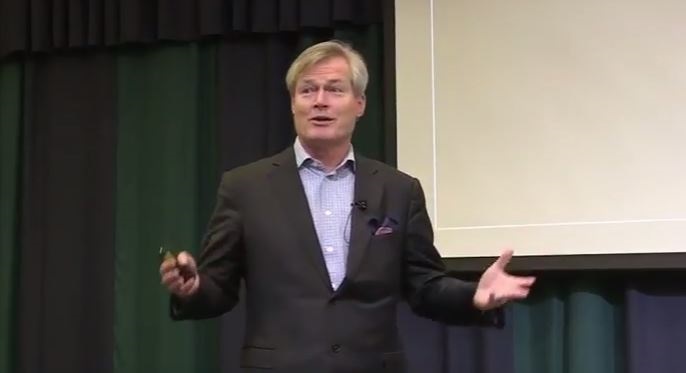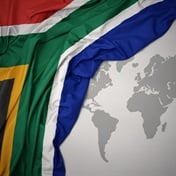
A new competitive strategy for business called ‘The Blue Economy’ could be an effective response to ever-increasing demands for earth’s resources, Professor Gunther Pauli told a Gordon Institute of Business Science Forum.
The economist, author and founder of ZERI (Zero Emissions Research and Initiatives) network of entrepreneurs and scientists argued for concrete initiatives, based on science, that would change the way the world looks at business and create a more humane form of capitalism.
Pauli proposed a fundamental transformation of business: “We have to change the way we do business. It makes no sense. We have a hard reality before us and have to work for change.”
The Blue Economy
While the green, or circular economy, accepts existing economic and business models, Pauli explained that he believed present business models would not be able to respond to the global population’s future need for food, water, housing, health, energy and employment with ethics. “We have to generate value that transcends what we have today, using what we have.”
The Blue Economy is an economic model that responds to people’s needs and regenerates ecology by using nature and what already exists, while being highly competitive.
“It is inspired by nature and its core principles of no waste and no unemployment, and of putting waste products to productive use,” Pauli said.
The initiative currently has 204 active projects across the globe with $5 billion invested and has created 3 million jobs.
Initiatives include a project to create stone paper from cement dust particles; regenerative kelp farms for use as fertiliser, creating biodegradable packaging from renewable sources and cyanide-free gold processing to create micron sized gold dust for medical equipment and microelectronics use.
Instead of always looking for cheaper and standardised production to create economies of scale, the Blue Economy aims to create value.
“We have to stop thinking cheaper and rather do better by borrowing from the incredible forces of nature.”
The Blue Economy is innovative and totally disruptive, Pauli explained, while keeping ethics and values at the core: “It is not enough to do less bad. Polluting less is still polluting. You cannot do less bad and say you are doing good.”
“Our focus is on getting things done and using what we have to generate abundance. The challenge is to see the opportunities,” Pauli said.
The Blue Economy in Africa
South Africa has an abundance of resources and skills that could be used in the Blue Economy model, such as the gold and mining industries and the fisheries sector.
“The opportunities here are incredible. It is easier to get stated in Africa than in any other place in the world.”
However, Pauli argued that change requires political leadership, and for people to believe in that leadership: “Politics has to change. We cannot tolerate governments that refuse to do good.”
The need for change
Scientific initiatives to harness the power of nature are fundamental to the Blue Economy’s long-term perspective and shift in thinking. This includes moving from the manipulation of chemistry and genetics to the predictability of physics and mathematics, Pauli explained.
“It’s not about being proprietary, but rather finding the best solutions for people, planet and profit. We have given science a license to do things that don’t make sense. If business wants predictable results, chemistry and genetic modification don’t make sense.”
He gave the example of biodegradable plastics, which aren’t able to disintegrate in seawater, leading to vast amounts of ocean waste.
“How can we celebrate science that is so neglectful of the physics and mathematics we need?”
“Business today only wants to see one result but systems are interconnected. We can’t continue to just use the traditional analytical systems learned at business school, they don’t work any longer.”
Pauli believes part of the change that is needed relates to the way in which projects are financed and is working on new financing techniques to redirect resources: “Money is in need of better projects. We need captains of legacy and policy makers who are ready to change. When you have both, transformation can happen.”




 Publications
Publications
 Partners
Partners








